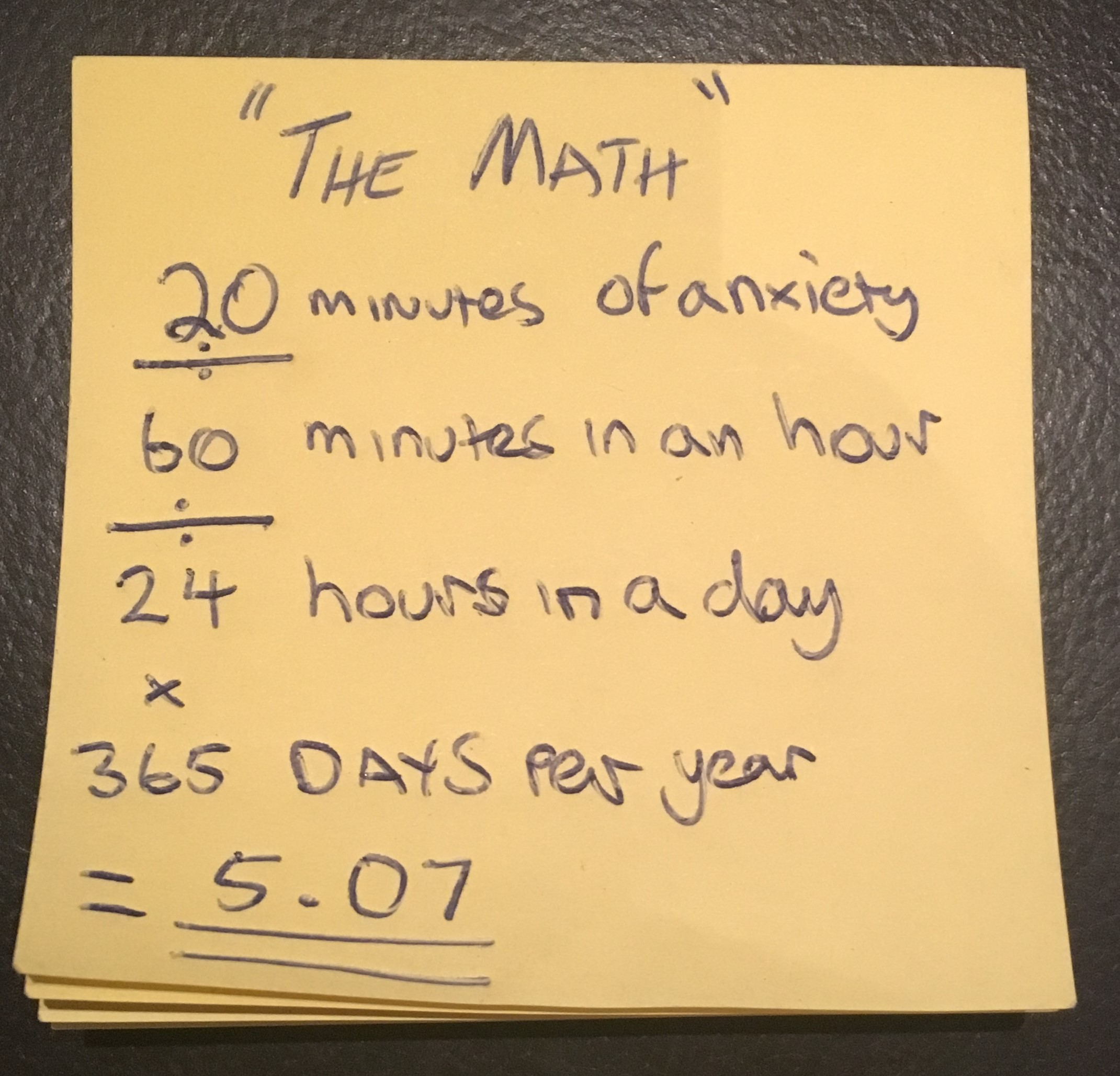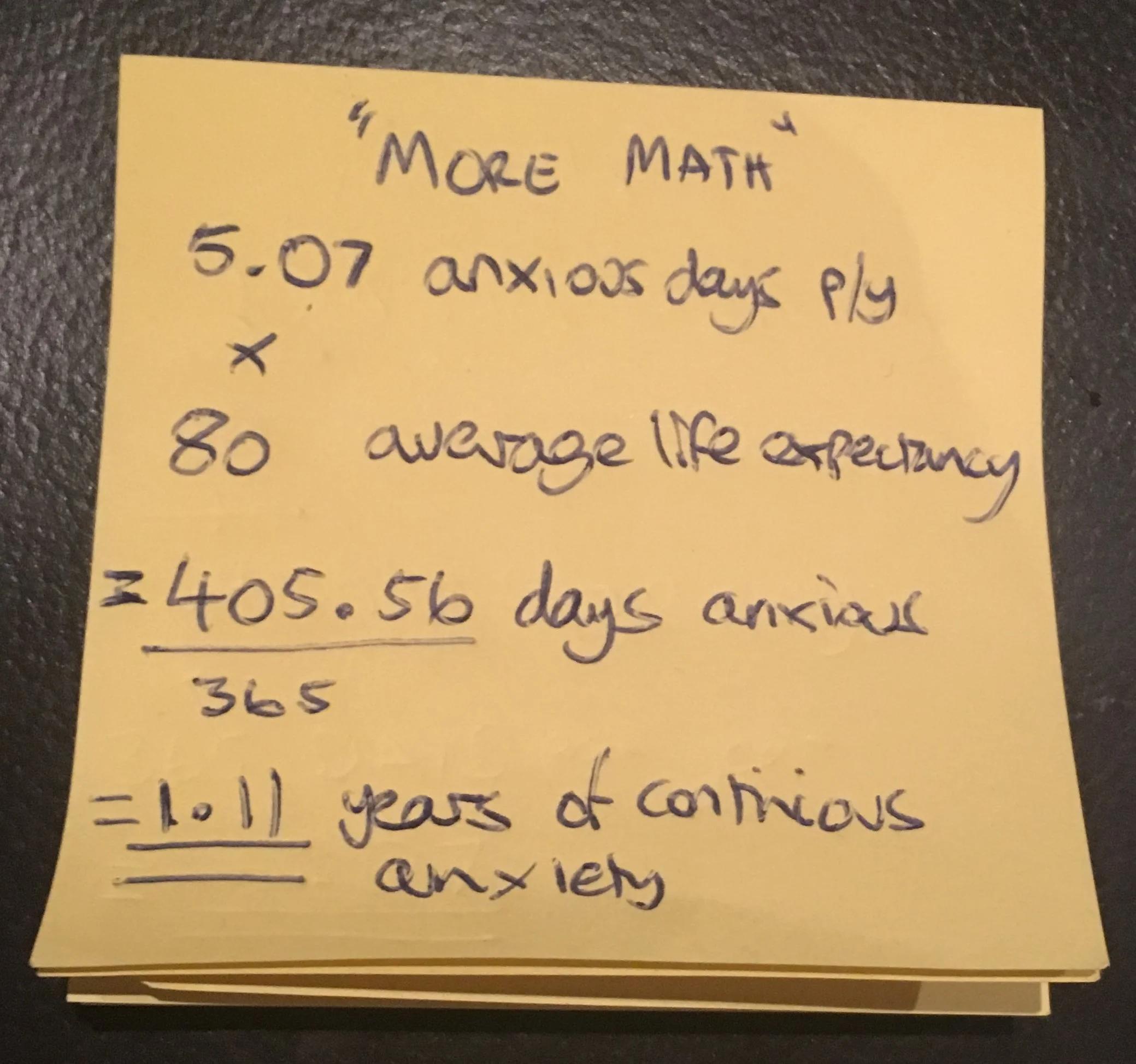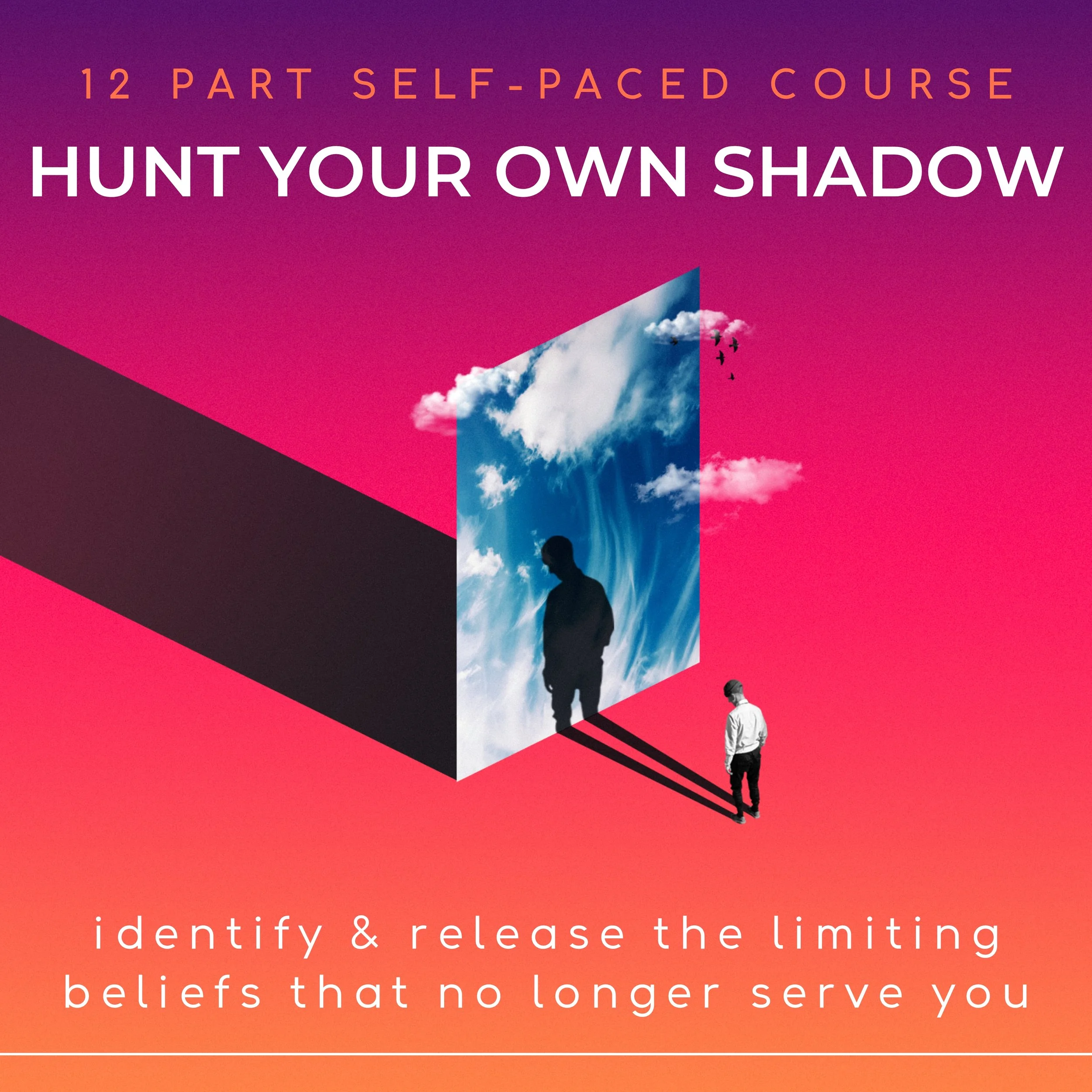Your Anxiety is a Liar – and it’s Costing You Years of Your Life
I grew up the son of a drug dealer, addict and paranoid schizophrenic. Due to my father’s lifestyle, there were always quite shady individuals coming over to our house. Whilst most of them were just addicts looking for their next fix, some were not so harmless. I grew up constantly on edge, needing to always be conscious of my surroundings and ready to protect myself.
Despite leaving that environment years ago, the mental state that I developed at the time stuck around. As such, I have been a fairly anxious person for most of my adult life. Only recently have I been able to start to heal.
Now that I am in a safe place (both physically and mentally) I find that my biggest problem is my anxious mind. I will ruminate on things incessantly, worrying about minute details that ultimately will only have a marginal impact on my life. At my worst, I will be thinking the worst – I will assume that everyone is judging me, everyone is out to get me or that everything will go wrong.
Suffice to say, this is not a great place to live mentally. Therapy, meditation and other coping strategies have all helped to reduce the severity and amount of anxious thoughts that I face on a daily basis. I still have an anxious disposition, but it is manageable. My quality of life has significantly improved, and I want to share that with you.
Reflecting on my experiences with anxiety leaves me with a one sentence, anxiety killing mantra:
“Anxiety is a liar and it’s taking up too much of my life”.
I want to prove it to you. Consider the following questions:
When has it ever been as bad as you thought it was going to be? How many times have you worried about something that just has never occurred? How many anxious thoughts do you have about one thing - could each possible outcome come true? How many times were you anxious before an event, only to be completely fine during the event?
Think back to the last time you were anxious. How many variations or potential futures did you imagine? If you are anything like me, probably a lot. It is important to be aware that even if the worst happens, only one possible future can occur. Therefore, even if you happen to guess (and ruminate on) the actual future that will occur, every other option that you were playing through was nothing more than wasted mental space and time.
Also, by actively imagining all the possibilities that could arise, you are in effect living the worst of every possibility! I know that when I do this I end up feeling physiologically drained. I feel tired, stressed and run down. It is hard work to imagine and play through each possibility in your mind. Remember that only one future can arise, and you may not even be thinking of it.
Anxiety can cost us, but not how you would think. How often do you catch your self losing focus, ruminating on a minute, improbable thing? This can often take us out of the moment and can cause issues then and there. By losing focus and drifting into rumination we are not helping anything, in fact we are causing issues in the present.
To this day, I find myself drifting off into my own world of anxiety – even in the middle of a conversation. This clearly has negative consequences interpersonally. Around friends and family, I of course can explain what happens and they are (mostly) accommodating and understanding. However, this tendency has cost me career wise. Although sometimes I can’t help it, I can make steps to reduce its occurrences.
Really the anxiety itself is the problem, not the focus of the anxiety.
With this in mind, I wanted to work out, just how much my anxiety was costing me, and being the nerd that I am, I did the math. Whilst it is hard to determine how much time I spent just worrying (anxiety often comes comorbidly with every task I perform), I did work out how much time just 20 minutes a day of pointless rumination would cost me each year.
The answer is five days. That might not sound like a lot, but wait until it’s taken further. I now wanted to know how much time just 20 minutes a day would cost me over an lifetime – so I did some more math.
With the assumption that the average life expectancy is 80 years, if a person spends 20 minutes of their day ruminating pointlessly, then over a lifetime, they will spend a total of 405 days stuck in their head. That’s more than one year of nonstop worrying. This time constitutes a continuous year. That means no eating, sleeping, socialising, watching movies, working or anything. Just me and my anxiety.
All that time worrying is utterly wasted.
Whilst every person is different, and I always advise people to seek professional help, I want to give you two techniques that I have found that help me to move past my own anxious thoughts.
1: Track Anxiety Versus Bad Events.
Divide a lined page into two columns. On the top of the left-hand side write ‘Anxiety’ and at the top of the right-hand side write ‘Bad Events’. For the rest of the week take note of your anxious thoughts. Every time you are anxious note down the time and topic in the column on the left. Whenever something bad occurs note down the time and topic in the right-hand column
At the end of the week, compare the lists side by side. You will discover that there is a dramatic difference between what you worry about and what actually needs to be worried about. I found that I worried way more than I had to, and that I wasn’t even worrying about the right things – often ‘Bad Events’ happened and they never appeared in the left column. Meaning that my anxiety wasn’t even preparing me to deal with it!
2: Verbalise Your Anxiety.
Explicitly state your anxiety out loud, don’t censor or filter it in any way, just say exactly what you are thinking. You will find that the act of verbalising what you are worried about has the effect of shining the light of reality onto it. Often, we worry about things that are impossible or just unlikely – by saying it out loud you will easily see how ridiculous some (or in my case a lot) of your anxious thoughts really are.
I have found that these methods have the effect of both reducing my overall time ruminating as well as help me to highlight the actual things that I should focus my attention on. The things that could actually impact my life.
How do you handle anxious thoughts?
Read next:
The Five Reasons Why People Won’t Believe You Are Mentally Ill
What Anxiety Feels Like
Your shadow is the gateway to a more authentic you.
This course is your guide to profound inner work. Through powerful insights, guided prompts, and proven techniques, you'll navigate your shadow, heal unresolved wounds, and reintegrate the parts of yourself you’ve long ignored.
What’s Inside:
12 x Guided Meditation & Contemplations
12 x Introspective Prompts
12 x Expansion Challenges
A comprehensive instructional PDF guidebook
Unlimited email coaching for ongoing support and personalized guidance
Explore full course details and watch intro video here!
This isn’t just about healing, it’s about meeting your shadow head-on, embracing every part of yourself, and reclaiming your full power.
Are you ready to face what’s been hidden and step into your truth?



